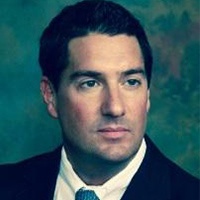 Hamden Misdemeanor Lawyers, Connecticut
Hamden Misdemeanor Lawyers, Connecticut
Sponsored Law Firm
-
 x
x

Click For More Info:
-
Law Office Of Jason C. Goddard, LLC
363 Main Street 4th Floor Hartford, CT 06106» view mapCriminal Defense Law Working Relentlessly For You
Attorney Jason C. Goddard is an experienced criminal defense lawyer who has handles serious criminal cases in Connecticut, New York and CT District Court.
800-739-1160
Not enough matches for Hamden Misdemeanor lawyer.
Below are all Hamden Criminal lawyers.
Sponsored Lawyers
1-10 of 34 matches
Accident & Injury, Estate, Criminal, Divorce & Family Law, Contract
Daniel is a decorated police officer who spent 9 years in law enforcement, where he received an academic award of excellence from the Milford Police Academy, as well as the Samuel Luciano Award and the Daniel S. Wasson Award. Daniel proceeded with his education, graduating Magna Cum Laude from the University of New Haven, Investigative Sciences, and was a Dean's Scholar Award Recipient at the Quinnipiac University School of Law. Afterward, he started Daniel A. Esposito Attorney at Law LLC.
(more)DUI-DWI, Accident & Injury, Criminal, Workers' Compensation
Representing the accused and the injured since 1957. We understand that sometimes good people make mistakes. The story of the LoRicco family and the LoRicco Law Firm is intertwined with the history of New Haven. Our firm has been engaged in the general practice of law since 1956, with an emphasis on personal injury matters such as auto accidents, bicycle accidents and work injuries. Our attorneys are revered for producing successful client outcomes by means of calculated negotiations and passionate representation. We regularly secure substantial verdicts on behalf of our clients in state and federal trial courts throughout Connecticut. With decades of combined experience and an over 50-year law firm history, we have the resources and talent to confidently guide your family or business through the legal process successfully and efficiently.
(more)


 Jason Goddard Hartford, CT
Jason Goddard Hartford, CT AboutLaw Office Of Jason C. Goddard, LLC
AboutLaw Office Of Jason C. Goddard, LLC Practice AreasExpertise
Practice AreasExpertise


